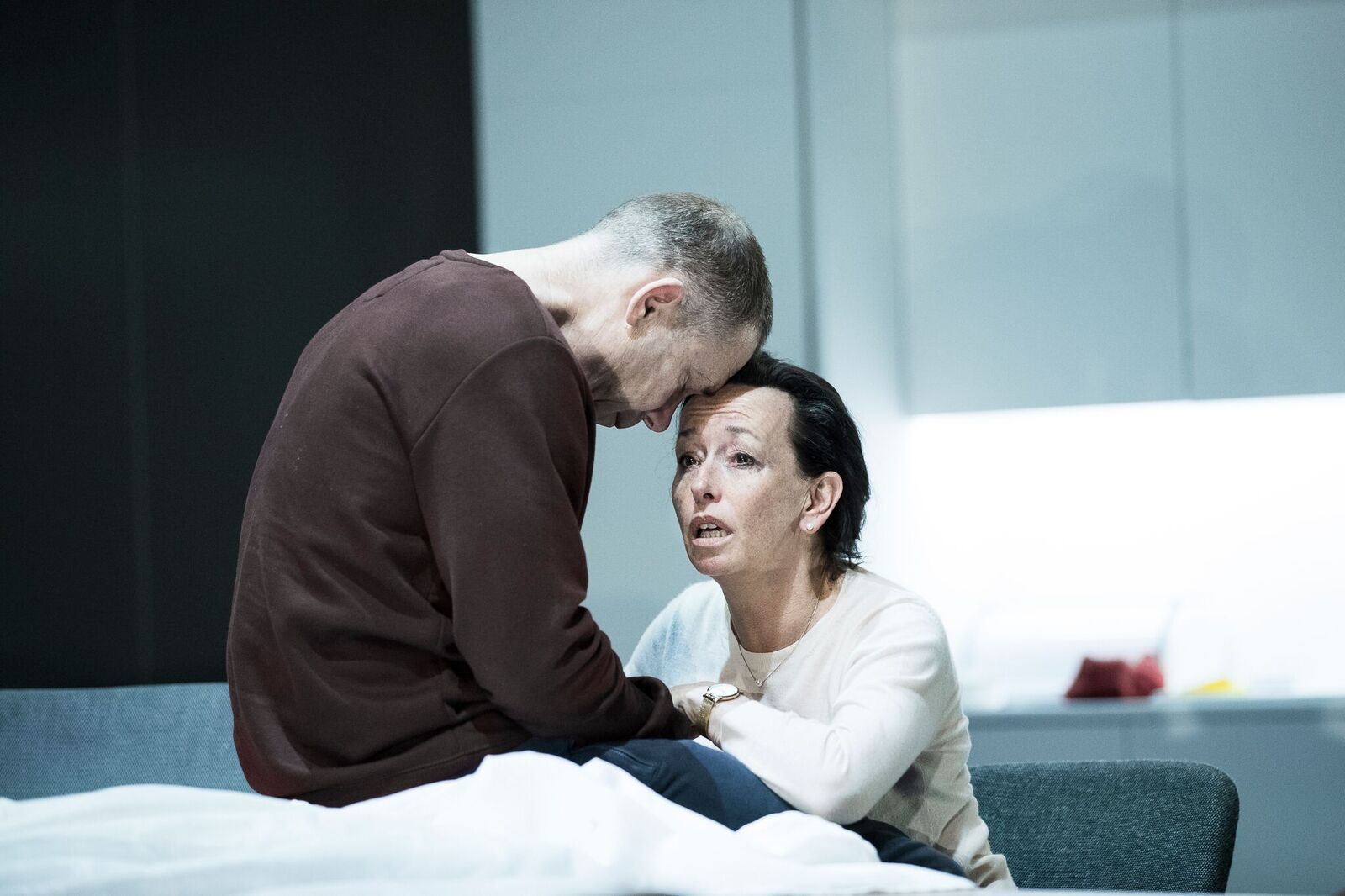Oedipus is a name universally known, one which has been ridiculed in philosophy and literature for millennia; yet Robert Icke’s retelling of Sophocles’ tragedy is mesmerising, impeccably timed and overflowing with sublime performances. Rather than acting ignorant of the audience’s knowledge of the tale of Oedipus, Icke builds upon it; constant small jibes about the meaning of family and tiny hints at the truth are subtly laced throughout the narrative and expertly distributed.
The theatrical experience is made unique, and initially confusing, by the presence of three screens. The play is in Dutch and these screens display English surtitles – a technique used by Internationaal Theater Amsterdam in previous works. The most prominent screen is suspended above the stage, slightly too high for the audience to be able to read the surtitles and watch the drama at once. Though this makes taking in the full experience difficult at first, with time you become accustomed to the set-up. The surtitles in fact compliment the action and add to the play’s drama, for it allows for the sumptuous dialogue and script the be truly appreciated, with the clever wordplay, jokes and riddles given time to be processed and experienced.
In terms of Icke’s adaptation, the backdrop of a modern political campaign seems unambitious at first, a staple of theatrical retelling; however it functions as a carefully thought-out and clever setting for the story to unfold. An obsession with truth drives Oedipus’ campaign and personal life, reflecting the current political climate incredibly well; particularly in the repeated, astute motif of Oedipus promising to reveal his birth certificate.
The staging is fascinating, with the exquisitely detailed set of a campaign office being slowly dismantled before the audiences eyes as a large red timer counts down. A sense of simultaneous movement and stagnation is created, which is tantalising and terrifying – the constant visual cue of the timer driving the action forward. The stage also features office furniture, large rotating doors and multiple screens, which immerse the audience and heighten the feeling of privacy and intimacy, offering a glimpse into the fraught and seedy atmosphere behind the scenes of a political campaign. Such a dramatic plot could seem contrived or melodramatic when placed in a contemporary setting, yet the realism of the staging and thoughtful portrayal of anguish and violence through the focused lens on one family’s strife instead creates a chillingly recognisable and relatable scene. Overall, the action on stage feels fresh, relevant and utterly compelling.
Hans Kesting is a revelation. As Oedipus, he combines devastating charm with chilling conviction to deliver a performance that is intense, believable and sympathetic. He is most impressive in moments of political conflict with Creon, played by Aus Greidanus Jr., where the character’s iron will and steadfast beliefs are palpable.
Marieke Heebink offers a gut-wrenching and enthralling portrayal of Jocaste. Her move from composed, supportive wife and petty, squabbling mother to plunging to the depths of the character’s traumatic past with guttural screaming and animal-like pain is staggeringly well acted. Her monologue detailing her past is captivating, horrifying and easily one of the highlights of the play.
Icke’s Oedipus is a gruesome, uncomfortable and utterly compelling piece of theatre with fascinating, innovative staging and an excellent, vibrant cast.
